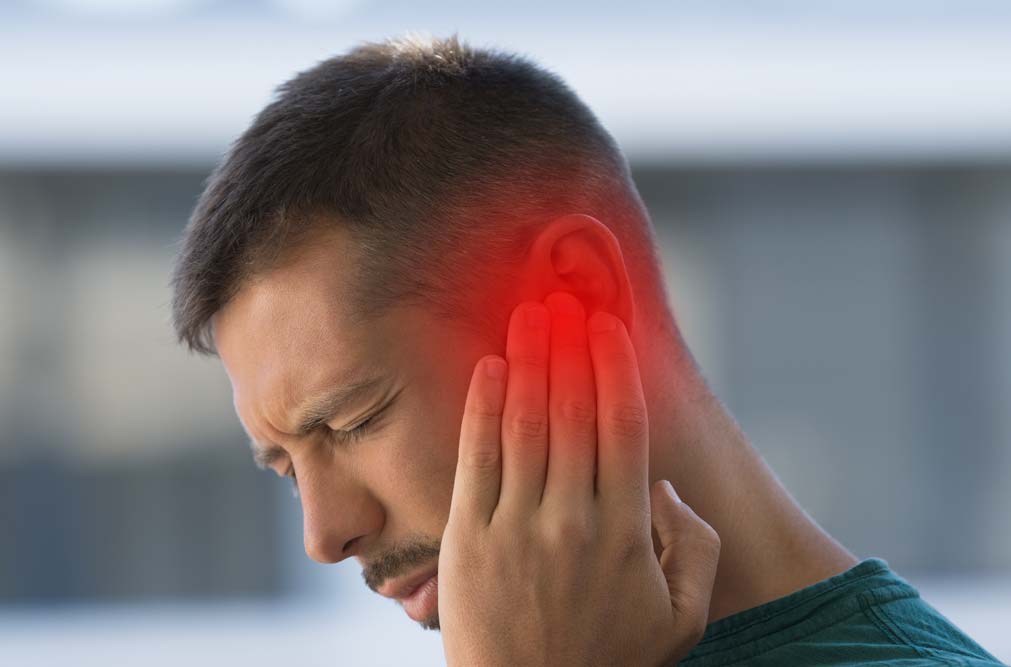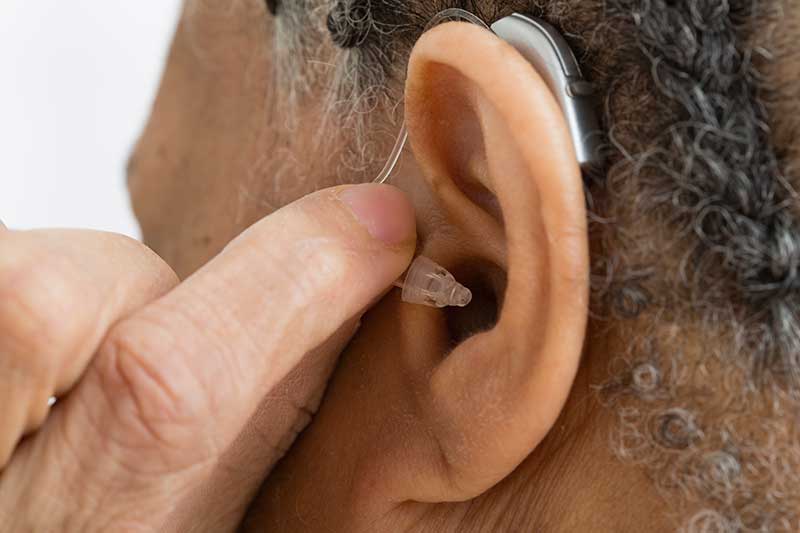Better Hearing Blog

How Do Movies in Today’s Day and Age Affect Hearing?
You waited for the movie premier and it’s finally here. But have you thought about how the loud volume levels at the movie theater will affect your hearing? According to a study by researchers at the University of Hawaii, some movie theaters displayed films with peak volumes of about 130 decibels. While sound levels were not as high throughout the movies, scenes depicting explosions, gun fights, and car chases had high sound levels peaking at 130 decibels. To put this in perspective, this sound level is equivalent to that which you would experience a jet is taking off and you are standing 100 meters away from the jet.
The results of this study show that it is possible to suffer hearing loss from watching a single movie at a movie theater. In fact, if you leave the theater with a ringing in your ears, it could be early signs of hearing loss.
Not Just the High Sound Levels
Health experts advise avoiding sound levels of over 80db. A normal conversation is about 60 to 70 decibels. Most movie theaters have sound levels ranging between 74 and 104 decibels. Many people will play their home theaters at around 85 decibels. While these sound levels seem safer than 130 decibels, it is not just the sound levels that contribute to hearing loss but also the length of your exposure to the sounds.
According to health experts, exposure to sound levels of about 85 decibels for eight hours or less is safe. However, you can begin to experience hearing loss for exposure to sound levels of 88 decibels for more than four hours. Hearing loss may be experienced due to exposure to noise levels of 91 decibels for more than two hours. If your movie achieves sound levels of 100 decibels, you may experience damage to your hearing after only 15 minutes of exposure.
As a rule of thumb, if you can’t have a normal conversation with the person seated next to you, the volume is probably too high.

Who is at Risk of Tinnitus?
Do you hear ringing in one or both of your ears? Tinnitus is a condition where the person experiences the sensation of a sound in their ears without there being an external source for the sound. Ringing is one of the most common symptoms of this condition. It was estimated in a recent study that this condition affects about 10 percent of the adult population in the country. This is about 21 million adults.
Are there people at higher risk of developing tinnitus?
There are many causes of tinnitus. There are also people who are at higher risk of developing the condition. Some of the most causes of tinnitus include:
- Age-related hearing loss – you may perceive noises that aren’t there as a result of the deterioration of the structures within the inner ear
- Medical conditions such as head injuries and ear infections can result in temporary tinnitus
- Exposure to high noise levels such as the firing of guns, a jet taking off, or a car crash can result in tinnitus in people of all ages.
- Some medications can result in tinnitus as a side effect.
- Lifestyle habits such as smoking or high intake of salt can increase your risk of developing tinnitus.
- Genetics – studies have revealed that some forms of tinnitus are hereditary.
How to Prevent Tinnitus
Tinnitus is preventable. There are several ways that you can protect your hearing. These include:
- Wearing earplugs when you’re in an environment with loud sounds such as at a construction site or at a loud event.
- Practicing safe listening for example keeping the volume of music at a reasonable level.
- Avoiding ear infections and getting timely treatment when an ear infection does occur.
- Visiting your audiologist if you have started to experience symptoms of tinnitus.
Prevention is key if you want to protect your hearing.

Minimizing Noise
We experience sounds in our environment every day. Many of the sounds we encounter on a day-to-day basis are at safe levels. They do not have an impact on our hearing. However, there are sound levels that can have a negative impact on our hearing.
How Does Noise Affect Hearing Loss?
Being exposed to sounds that are too loud or being exposed to sounds that are too loud for too long can result in damage to the sensitive structures within the inner ear. This in turn can result in what is known as noise-induced hearing loss (NIHL).
NIHL can be immediate. It can also occur over time and take a long time to be noticed. It can also be permanent or temporary and affect one ear or both ears. According to a CDC study, hearing loss affects about 10 million adults in the US under the age of 70. The study also revealed that 24 percent of American adults exhibit signs that suggest a hearing loss in one or both ears as a result of exposure to loud noise.
There are three factors that affect how a sound affects you and if it will cause damage to your hearing.
- The decibel level – this is how loud the sound is. In general, sounds that are too loud can cause hearing loss.
- Distance – this is how close the source of the sound is to you. A loud sound may not cause hearing loss if the source is too far away.
- Time – this is the length of exposure to the sound. A loud sound can cause damage even after a short length of exposure while a sound with a lower decibel level may cause damage after prolonged exposure.
Noise levels of 140 decibels and above can cause permanent hearing loss. These include gunshots and jet engines within 3 feet and for a few seconds.
Can Minimizing Certain Sounds and Noise Levels Protect Your Hearing?
According to the CDC NIHL is completely preventable. The first step is understanding what type of noises can cause damage to your hearing. You can then take steps to protect your hearing.
Some of the steps you can take to protect your hearing include lowering the volume of noise sources, moving away from sources of noise as well as wearing hearing protection. Some examples of hearing protection you can wear include earmuffs and earplugs.

How Quickly Does Hearing Loss Progress
Hearing loss is one of the most common hearing problems affecting older adults in the US. In one population-based study in Beaver Dam, 21% of adults aged 48-59 had hearing loss, while 90% of those 80 years or older had hearing loss.
This shows that hearing loss progresses with age, as well as with other factors. This is caused by a gradual decrease in hearing sensitivity, which starts in our 20s but becomes noticeable in the late 50s and 60s.
Why Does Hearing Deteriorate With Age?
Natural deterioration in your hearing ability is mainly caused by degeneration within the inner ear, and in the neural pathways that connect to the brain.
The inner ear contains tiny hair-like projections (stereocilia) that convert sound into an electrical signal for the brain to interpret. These structures can be damaged for any number of reasons, resulting in reduced sensitivity to sounds.
In the brain, the neural pathways between the ear and the brain can also degenerate, sending weaker electrical signals to the brain and resulting in reduced hearing.
Factors That Help Speed Up or Slow Down Hearing Loss
While hearing function declines naturally with age, there are many factors that speed it up including:
- Smoking
- Diabetes
- Exposure to loud sounds such as music, firearms, lawnmowers, and aircraft
- Heart disease
- Some medications that damage cells in the ear
- Genetics can also make you more vulnerable to hearing loss
Hearing loss can also be quick and sudden, such as when explosive sounds rupture the eardrum. You can also suffer head trauma, severe infections and disease, neural conditions (such as multiple sclerosis), and autoimmune diseases.
What You Can Do to Slow Down Hearing Loss Now
It is not yet possible to prevent age-related hearing loss. However, you can slow it down by avoiding these risk factors and protecting your ears.
Loud occupational and recreational sounds are one of the biggest causes of accelerated hearing loss. Always wear earplugs when attending loud events or working with loud machineries, such as agricultural work, going to the speedway, or mowing your lawn.
By reducing exposure to loud sounds and wearing ear protection, you can keep your ears safe for longer. Other ways to protect your hearing include:
- Quit smoking
- Manage your blood sugar and blood pressure
- Maintain a healthy weight
- Seek treatment for any health concerns
- Get your ears cleaned professionally to get rid of wax buildup
In addition, consider regular hearing tests to help catch hearing loss early and start treatment.
Do Hearing Aids Prevent Hearing Loss?
No, hearing aids don’t prevent hearing loss. However, they do help your brain adjust to your hearing deterioration and maintain your hearing ability.
Most importantly, hearing aids keep your neural pathways strong and functional. This is why experts recommend wearing your aids all day, every day, to keep your hearing functions strong and reduce hearing fatigue.
Hearing aids keep up with the progress of hearing loss, but you may need a new set approximately every 5 years, possibly sooner if your deterioration is faster.
What are the main benefits of hearing aids?
About 15% of Americans over the age of 18, (37.5 million people) report some kind of hearing trouble. Despite that, only 1 in 5 people who would benefit from a hearing aid uses one.
If you have trouble hearing, you should know that hearing aids have the potential to improve your quality of life substantially. They can also make life so much easier for your loved ones, friends, and colleagues.
Why Should You Get a Hearing Aid?
Modern digital hearing aids are highly sophisticated, smart devices that process sounds, cancel background noise, and even let you connect directly to smartphones and other devices.
Hearing is a complex process that involves the ears and the brain. A good hearing aid is tailored to your exact needs. Hearing problems range from mild hearing loss to severe loss and tinnitus. You may need a hearing aid if you:
- Often complain that other people are mumbling or speaking too softly
- Have trouble hearing in noisy environments such as restaurants
- Have to listen to TV or the radio louder than other people
- Find it difficult to get all the dialogue in movies
- Have trouble understanding conversations on phone calls
- Strain to hear conversations, especially when you can’t see people’s faces
Did you know that you can have trouble hearing high-pitched consonants, and still hear normal and mid-pitch vowels perfectly? This is a type of hearing loss that makes it hard to understand what people are saying in normal conversation.
An ear specialist will be able to diagnose your hearing by the results of a hearing exam (audiogram). They can then advise on the right type of hearing aids, whether you need one or two for both ears and other treatment options.
Who Benefits Most From Hearing Aids?
Everyone with hearing trouble can benefit from hearing aids. However, those with mild to severe hearing loss, especially seniors aged 65 and older, benefit most from using hearing aids.
Advanced age causes a decline in hearing ability, which in turn can lead to cognitive decline, depression, and social isolation. For such people, having hearing aids early on can slow cognitive decline and prevent the onset of conditions such as dementia.
Children and young adults with hearing loss also benefit greatly from hearing aids. Hearing aids help children develop normally and relate well with other people in addition to improving their learning abilities.
Adults become much more functional in society when they use hearing aids. They can work better, relate well to other people, earn more money, and develop and maintain healthy relationships.
What Types of Hearing Aids Are There?
There are different types of hearing aids that are classified by their technology, design, and placement in or on the ear. The most common ones include:
- Canal hearing aids fit inside the ear, and some can be nearly invisible. They are unobtrusive and highly effective depending on the kind of hearing loss you have, but may not be ideal because they are difficult to adjust.
- In-the-ear hearing aids (ITE) fit inside the outer ear. They also work for mild to severe hearing loss but aren’t good for children since their ears are still growing.
- Behind-the-ear (BTE) hearing aids have a hard plastic case that sits behind the ear and an ear mold to direct sound inside the ear. A slightly different type called mini BTEs are smaller and have plastic tubing that carries sounds inside the ear. These can be great for almost anyone with hearing trouble.
- Direct audio input allows you to connect to a smartphone, TV, or other devices.
- A telephone switch picks up sounds from a phone better while canceling background noise.
Hearing aids can also be classified by whether they are analog or digital. The analog aids are cheaper and easier to use, while digital hearing aids use digital technology to adjust the sound.
An ear specialist will determine which type of hearing aids is best for your condition.

You’re still listening when you’re sleeping
Our ears and brains continue to process sounds even when we’re deep asleep. That’s how a mother can awake to her child’s cries, for example. But she wouldn’t wake up because of the noise of chirping crickets or a whirring fan.
Even in our deepest state of sleep, some parts of the brain remain active. This is a vigilance function, a survival instinct that lets the body decide whether or not to wake up when you hear sounds.
Science Daily reported a study by a Johns Hopkins undergraduate student that pinpointed areas of the brain’s frontal lobe that respond to sounds even when sleeping. Even though sounds may not wake you up from sleep, they can change body functions such as increasing heart rate and releasing hormones.
Even though scientists don’t know exactly how we monitor our environments when we sleep, they know that it can influence the stages of sleep.
How Sounds During Sleep Affect The Stages of Sleep
Every night, a normal adult goes through four to six sleep cycles. Each of these cycles consists of four stages each with different characteristics.
- Stage 1 (light sleep): You’re just starting to sleep but aren’t completely relaxed. You’re still paying attention to your environment, your body may twitch, and it’s very easy to wake up. This is what happens during a short nap.
- Stage 2: Heart rate, breathing, and body temperature start to drop. The brain also slows down, so it’s harder to wake up.
- Stage 3 (deep sleep): This is a slow-wave sleep in which your brain disconnects from the rest of the world. Your breathing, heart rate, and temperature drop significantly. You retain a slight awareness of the outside world, but it’s hard to shake you from this sleep.
- Stage 4 or Rapid Eye Movement (REM) Sleep: This is the stage when you dream. All brain activity is temporarily paused, and it is the deepest stage of sleep during which you can’t be awakened by sounds.
Stages 3 and 4 are vital for good health and brain function. Stage 3 sleep is when the brain consolidates memories, relaxes muscles, and starts self-repair. Stage 4 or REM sleep is critical for immune and cognitive functions, learning, and creativity, and is responsible for vivid dreams.
However, sounds during sleep stop you from reaching the two-deep stages of sleep. It causes the body to react to all sounds, become excited, and release hormones such as adrenaline and cortisol.
Over time, chronically disturbed sleep and insomnia can lead to health problems such as obesity, diabetes, and hypertension (high blood pressure.)
How White Noise Affects Sleep
Studies have shown that we can hear even when we’re asleep, except in REM sleep. However, not all sounds will arouse your body and increase vigilance. Sounds that the brain determines as soothing and non-threatening—called white noise—can actually improve sleep quality.
White noise, such as a humming fan, is continuous, low-frequency sound without any high-frequency peaks. It helps to block out sharp outside noise, a bit like how a pair of noise-blocking earphones or headphones work.
With less interruption in your sleep cycles, you will sleep better and reach all four stages of sleep. White noise also helps people with hearing loss or tinnitus who, ironically, find it hard to sleep properly. While noise helps them sleep by relaxing their brains more and introducing background sounds.
Your TV or radio is a terrible choice for background noise because it has frequency peaks and unexpected sounds. If you’re having trouble sleeping due to ambient noise, consider getting a whilte noise machine.

